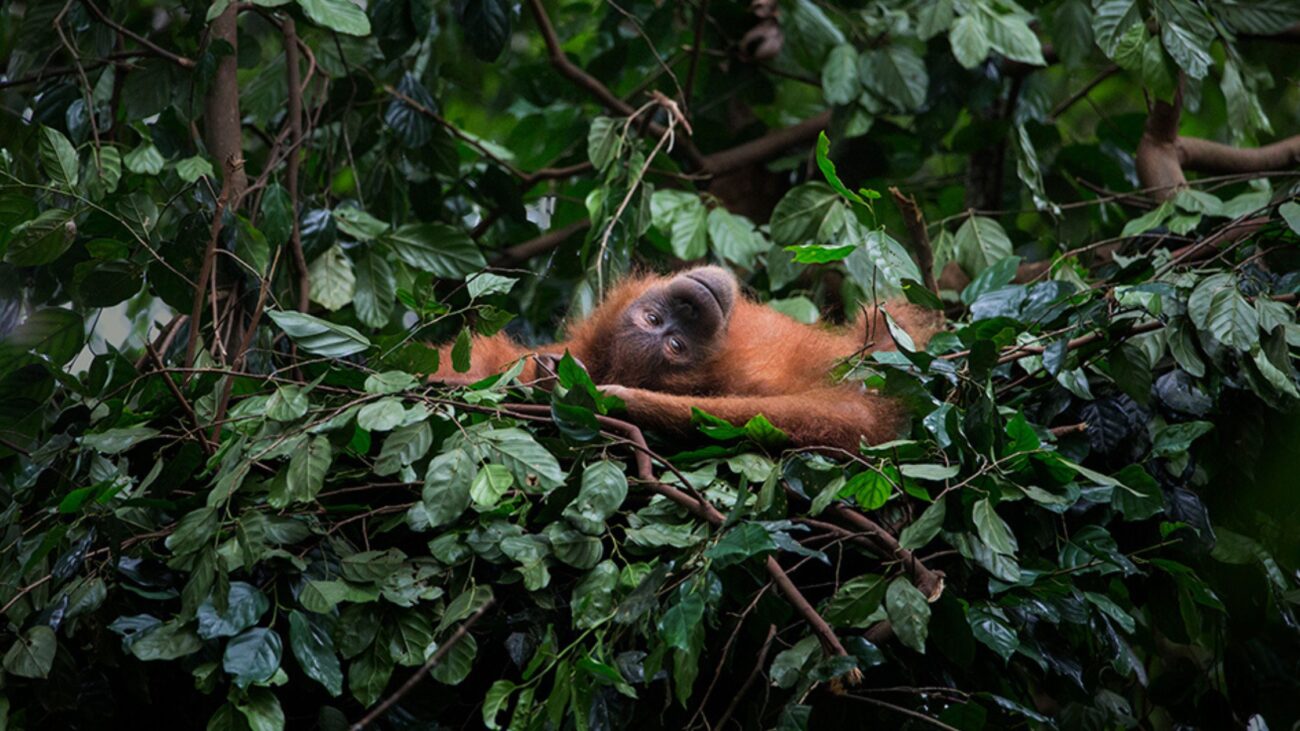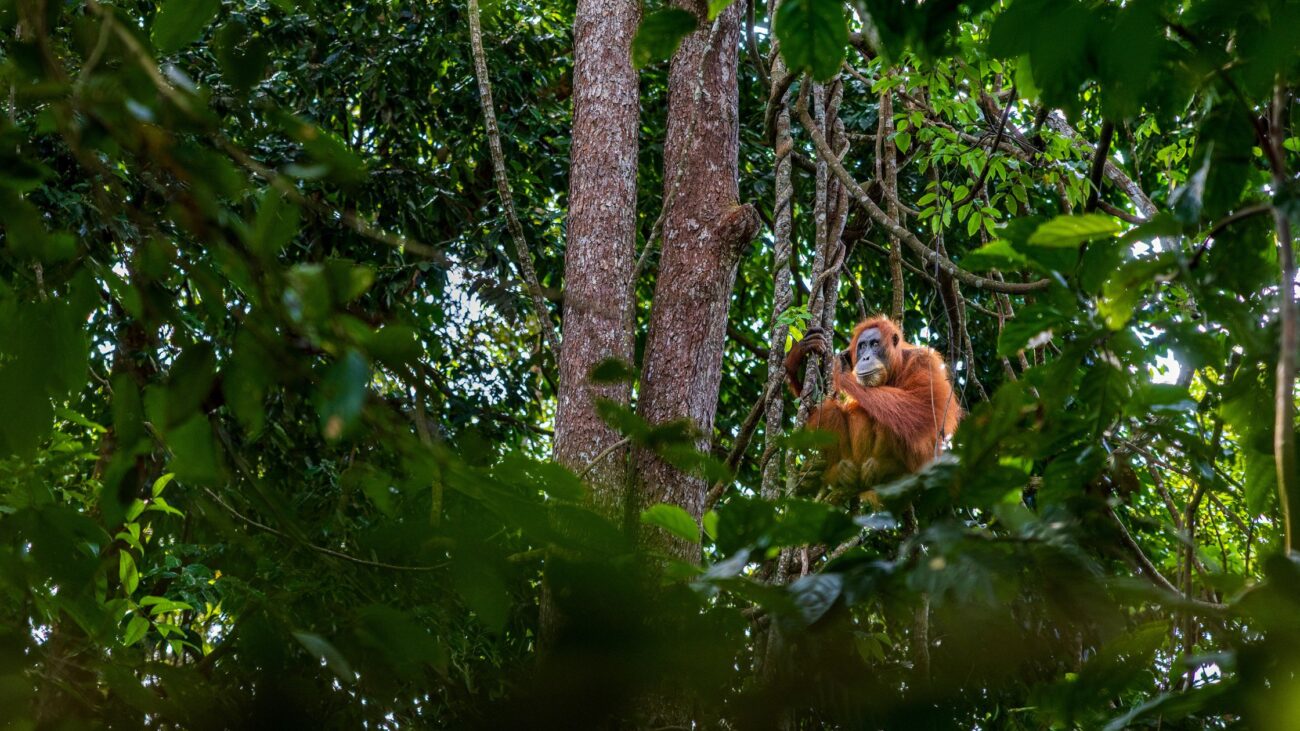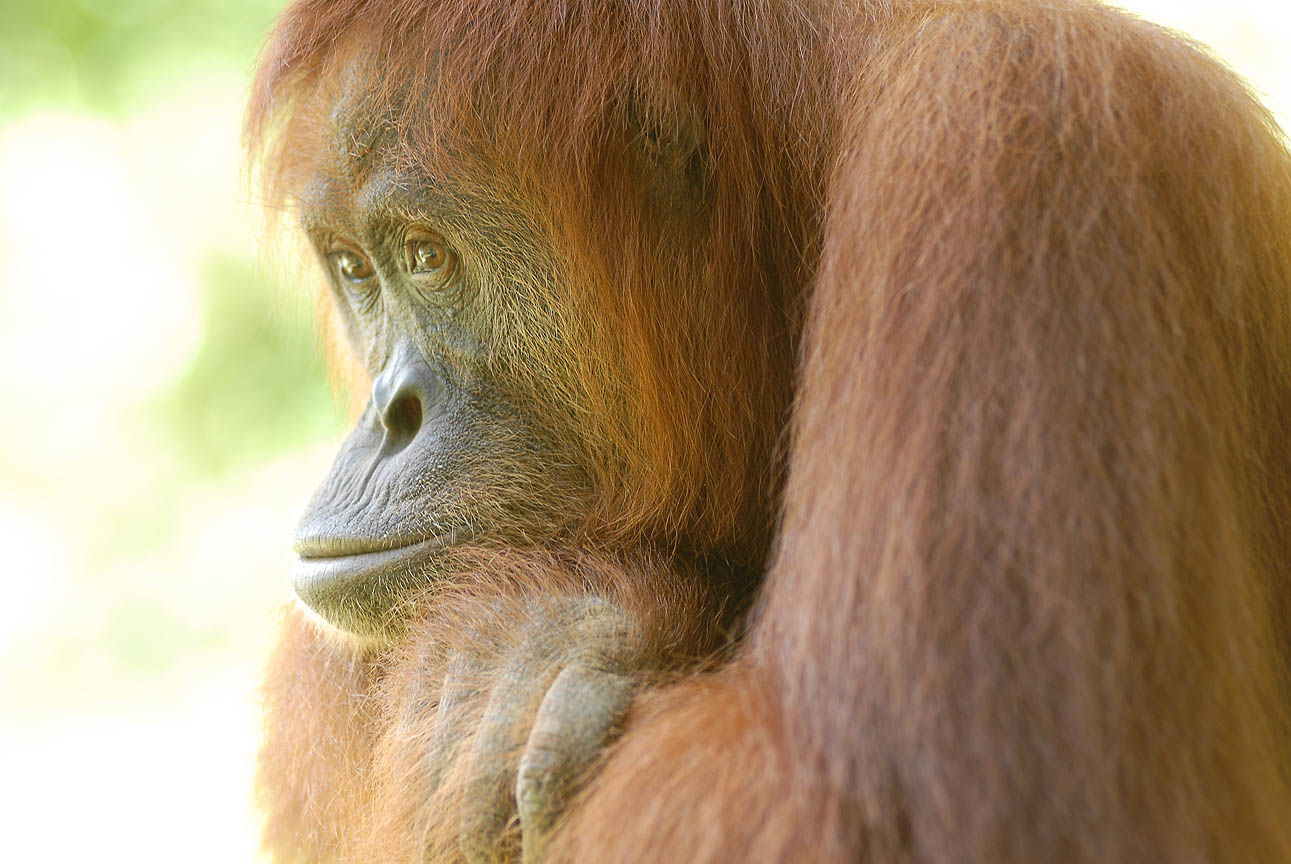
Orangutans spend their lives immersed in nature. These gentle giants rely on the rainforest for food, shelter, and survival. But the rainforest also depends on them. They help to maintain the health and resilience of the ecosystem. This interdependence teaches us about the importance of balance and harmony – characteristics we harness in our conservation principles.
Sumatra is known for its stunning landscapes and rich biodiversity. It is home to some of the planet’s most spectacular and globally important rainforests, which provides habitat for unique and threatened animals such as the Sumatran orangutan, tiger, rhino and elephant. These forests also perform vital ecosystem services for the communities around them and play an important role in regulating both the local and global climate.
At a global level, Sumatra’s intact rainforests and the soil below them are huge carbon sinks. They act as the Earth’s lungs, absorbing carbon dioxide and producing oxygen. Rainforests act as watersheds, absorbing huge amounts of rainfall and releasing it steadily to ensure a regular water supply downstream whilst reducing the risk of floods. Protecting rainforest landscapes like those found in Sumatra is crucial in the fight against climate change.
The health of rainforests is closely linked to the health of our planet. But that’s not all – nature plays an important role in our individual health and well-being. Immersing yourself in nature stimulates the senses, can lift our spirits, and can help us forget daily stresses. By getting involved with the world around us and soaking in the sights, sounds, and smells, we can become more present and mindful.
Stepping into natural environments can work wonders on your stress levels. Simply taking a leisurely walk through a forest can reduce your cortisol levels (the hormone that regulates your stress response), lower your blood pressure, slow your heart rate, and leave you feeling more relaxed.
Spending time outdoors can also boost your sleep quality. Getting some natural light in the morning, even if it’s cloudy, helps set your body’s internal clock, which is key for keeping a healthy sleep-wake cycle. The sun’s light sends a signal to your brain, helping it produce melatonin, the hormone that makes you sleepy. Additionally, lower cortisol levels can help you relax and make it easier to fall asleep and stay asleep.
Being present and mindful in nature can enhance self-awareness, alleviate stress and anxiety, lower blood pressure, and improve mood. So, why not head to your local green space and take a slow and deliberate stroll? Listen to the leaves rustling, and birds chirping, and feel the gentle breeze on your skin – really tuning into each step and feeling the ground beneath your feet. It’s a great way to stay present and deepen your connection with nature.

The key to protecting orangutans is preserving their forest home. By protecting rainforests, we can safeguard biodiversity and invest in our own mental health and well-being, and that of future generations. At SOS, we’re working with our frontline partners to create conservation solutions that help orangutans, nature, and people thrive, together.
Please consider making a donation today, and bring us one step closer to our vision of wild orangutans thriving in resilient forests. With thanks to PMAC or providing the wellbeing resources for this post.
You can help protect Sumatra's Orangutans. Click to get updates
